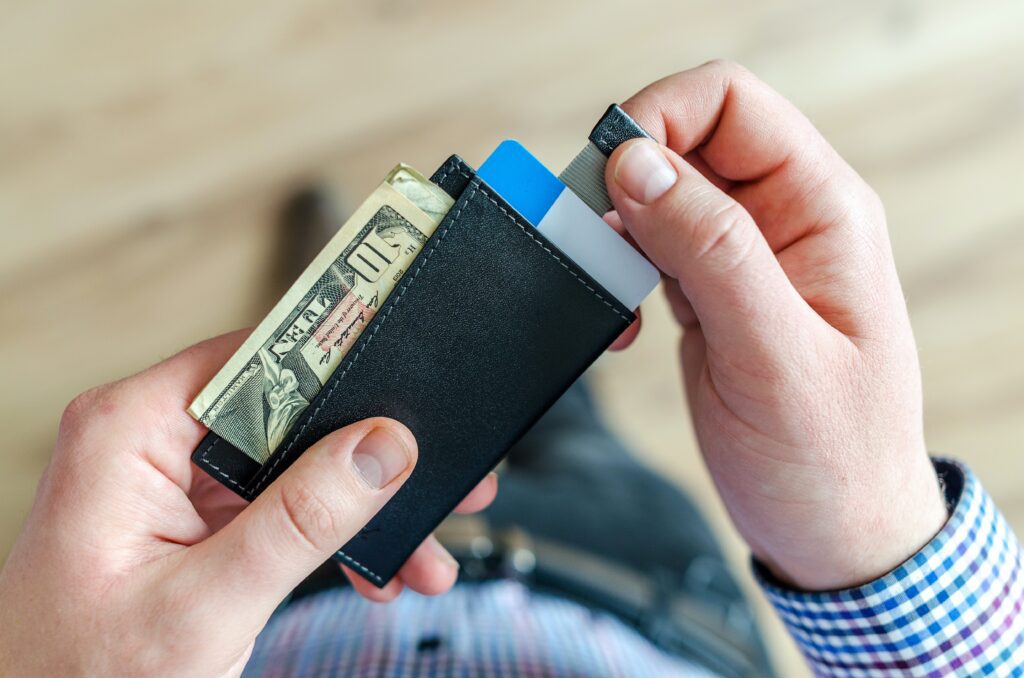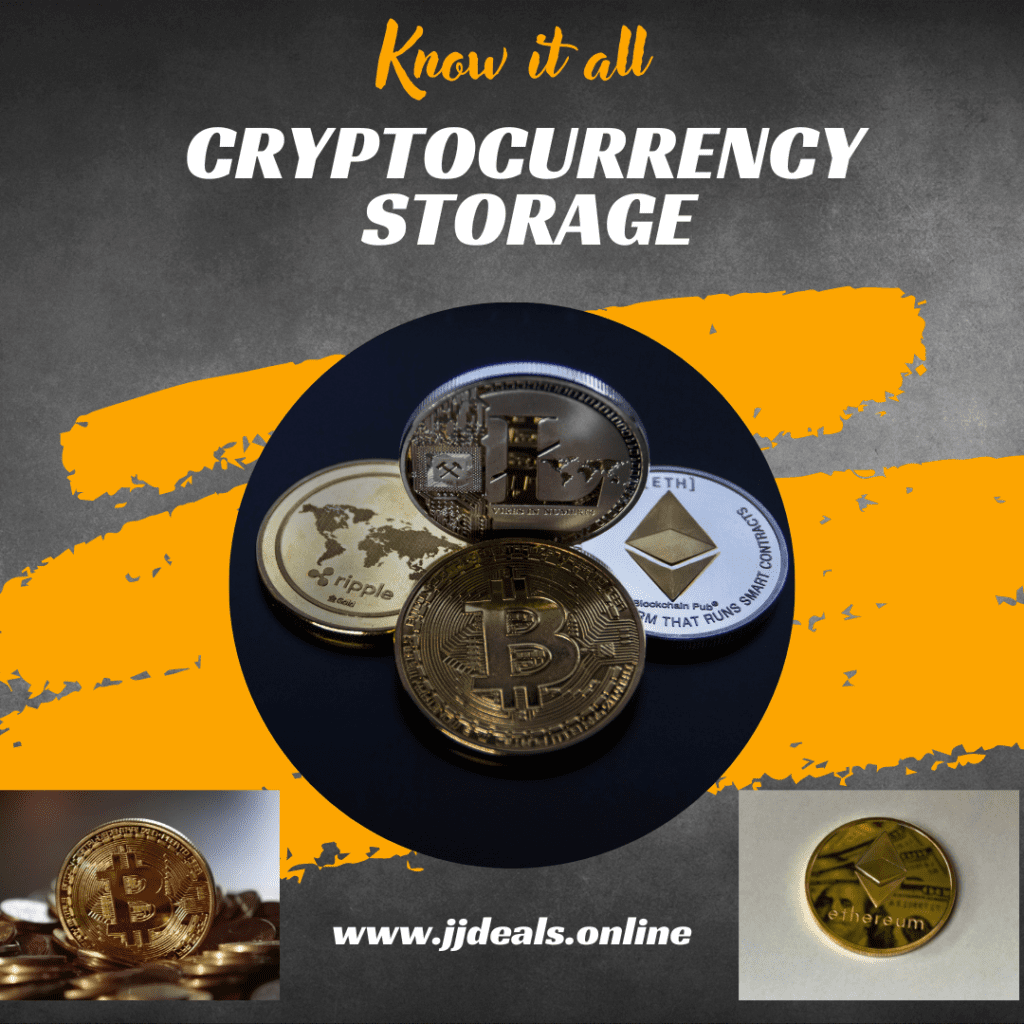Know all about crypto cold wallet storage. It is one thing to acquire cryptocurrency, but it takes altogether different abilities and knowledge to store it securely. This tutorial will show you how to safeguard your money, pick the best wallet, and stay away from the most prevalent crypto security pitfalls.


crypto cold wallet : How to Store Cryptocurrency
A cryptocurrency wallet is a piece of software that keeps your public and private keys safe, enables sending and receiving of digital currencies, allows you to keep track of their balance, and allows you to communicate with various blockchains.
To control and secure your cryptocurrency holdings, you need a wallet. There are many bitcoin wallets accessible, but their hotness or coldness makes a big difference.
- A hot wallet is a mobile wallet that is always accessible and linked to the internet.
- You can keep your money offline using a cold wallet since it is not connected to the internet. Although you cannot transfer funds out, you can still receive them whenever you want.
- All online cloud wallets, the majority of mobile and software wallets, and exchanges are considered hot wallets.
- Hardware wallets, offline paper wallets, USB and other similar data storage devices, as well as tangible bearer goods like real bitcoins, are all examples of cold wallets.
The majority of cryptocurrency users alternate between cold and hot wallets. While cold wallets are preferable for long-term cryptocurrency storage, hot wallets are helpful for frequent trading.
Let’s first discuss why holding your digital assets in exchanges is often a terrible idea before diving into other wallets.
How should cryptocurrency be stored? There are five different categories of cryptocurrency wallets: paper, hardware, cloud, multisignature, and internet. Let’s examine each of them separately.
Source: Cryptonews
Types of Crypto Wallets


Wallets with Multiple Signatures
The increasingly common multisignature wallet is a sophisticated method of safely distributing your private keys among numerous peers. For companies, family offices, decentralized groups, and people of all types, it’s a great security option.
Multisignature vaults are the result of teamwork between various stakeholders. For instance, you can design a wallet that can be opened with two out of three keys by working with your closest friends, family members, or business partners. As a result, even if one of the keys is stolen or lost, your money is secure.
It is considered advanced to set up a multi-signature scheme, although it is becoming simpler as more tools become accessible to laypeople. Take a look at this BTC Sessions lesson, for instance.
Numerous Bitcoin multisig services are available if you don’t want to take the chance of creating your own multisignature system.
By combining cold storage and multisignature vaults, people and companies can attain an unheard-of level of protection when it comes to protecting their crypto holdings.
Paper Wallets
In general, paper wallets are categorized as cold storage. A “paper wallet” is typically a printed duplicate of your public and private keys on paper. Other times, it alludes to computer software that creates a set of keys as well as a printable digital file. You can either integrate your paper wallet into a software client or just scan its QR code to transfer money.
Paper wallets are hip, but they use an antiquated and risky technology. In general, it is not recommended to retain significant amounts of cryptocurrency on a paper wallet as of 2022.
Cloud Wallets
By definition, online wallets are widely used. A cloud wallet allows you to access your money from any computer, gadget, or location. Although they are very practical, your private keys are kept online and are subject to outside influence. They are therefore made to be more susceptible to theft and attacks.
Cloud wallets are a riskier option than non-custodial internet wallets. Your private keys are not accessible to the service provider, but they are accessible via online and apps. The majority of exchange sites offer non-custodial wallets, which let you trade your coins in a risk-free environment.
Software Wallets
On a personal computer or smartphone, software wallets are downloaded and installed. They’ve got hot wallets. Both desktop and mobile wallets provide a high level of security; however, they cannot protect you from hacks and viruses, so you should take precautions to avoid malware.
Mobile wallets are typically smaller and simpler than desktop wallets, but both can be used to manage your funds. Furthermore, some software wallets allow you to access funds from multiple devices at the same time, such as smartphones, laptops, and even hardware wallets.
Hardware Wallets
In contrast to software wallets, hardware wallets keep your private keys on an external drive like a USB. They are secure and entirely chilly. They have the ability to pay online as well. Some hardware wallets accept numerous currencies and are web-compatible.
All you need to do is plug it into any online device, unlock your wallet, send money, and confirm a transaction because they are made to make transactions quick and easy. The safest way to store cryptocurrency assets is thought to be via hardware wallets. The fact that they are not free is their lone drawback.
Directly purchasing a hardware wallet from the manufacturer is the safest option. Buying it from strangers, especially ones you don’t know, is perilous. You must always initialize and reset a hardware wallet manually, even if you buy it from a manufacturer.
Usually, your portfolio dictates the wallet you choose. It may be more practical to have a multicurrency wallet, but every serious project should have its own wallet that can be accessed via the project’s website.
Keep in mind that not every cryptocurrency is supported by multi-currency wallets. A finite amount of currencies are supported by hardware wallets as well. On the other hand, there are a ton of wallets for well-known cryptocurrencies like Bitcoin and Ethereum.
Source: Cryptonews
Principles to Follow to Prevent Stolen Private Keys


how to keep cryptocurrencies safe. You’ve made the decision to take ownership of your cryptocurrency assets and keep them in a private wallet. Outstanding effort! But with tremendous power comes great responsibility, and now everything depends on your ability to stay safe and protect your private keys.
The most typical security measures to take are as follows:
- Avoid holding onto your cryptocurrency exchange for too long.
- The two-factor authentication (2FA) option should always be enabled.
- Utilize a pin code that is challenging to crack if you decide to use a hardware wallet, and never publish your 24-word recovery sheet online.
- Never publicly boast about your cryptocurrency assets using your real name or address.
- Even when cryptocurrency money are maintained in cold (offline) storage, some thieves are still able to steal them.
- You should only trust the information displayed on your hardware wallet’s screen, and you should double-check all other data.
- Always exercise caution when staring at the screen of your computer or smartphone since you never know when your devices may be compromised.
Source: Cryptonews
How to safely store your bitcoin and other coins with crypto cold wallet
There is another choice worth taking into account if the recent unrest in the cryptocurrency market has you considering selling. By taking your digital assets out of circulation and placing them in a digital wallet, cold storage protects them. These digital wallets are less susceptible to attacks because they are not connected to the internet.
It is advantageous to retain some or all of your cryptocurrency in cold storage, as demonstrated by the recent collapse of FTX. When you keep your cryptocurrencies on a platform like FTX, you can only get access to those assets if the platform is able to transfer your money to you. If the exchange is compromised or handles money incorrectly, your money can be lost.
Cold storage has the drawback of making your assets less liquid and slower to trade because you have to take several security precautions to access your money.
If you wish to start storing your cryptocurrency in cold storage, follow these steps.
crypto cold wallet types
You can buy a variety of cold storage wallets to get going. Not every cold storage wallet is compatible with every token. Here are some of the most well-liked options.
Ledger
The less expensive Ledger Nano S Plus and the more expensive Ledger Nano X are the two cold storage wallets offered by Leger.
Depending on the model, you can connect these devices to your computer through Bluetooth, a USB connection, and a mobile device that supports iOS or Android.
More than 5,500 different varieties of cryptocurrencies are accepted. It is important to remember that Ledger was breached in 2020, but no cryptocurrency assets were stolen, only 1 million email addresses.
Trezor
Trezor provides the Device T for $213 as well as an entry-level model for $72.
The Ledger Nano X and the $213 cold storage wallet are comparable, but the Bluetooth feature is missing. Because some individuals are worried that Bluetooth could be hacked, this is being done on purpose. Additionally, it works with desktop OS systems, Android, and web browsers.
Ellipal
The $119 entry-level Titan wallet by Ellipal depends on QR codes rather than USB or Bluetooth connections.
It accepts more than 10,000 distinct kinds of tokens.
The Best Way to Cold Store Cryptocurrency – crypto cold wallet
It is essential to get your cold storage wallet straight from the supplier. The last thing you want is to find yourself in possession of a gadget that has been set up with a password that is known in order to cheat you.
- Connect your PC to your cold storage unit.
- The software that came with your cold storage wallet should be installed.
- You will receive a backup code or seed phrase. The best place for this code to be kept is offline and secure, out of sight from prying eyes. It should be written down and kept in a safe.
- Every cryptocurrency, such bitcoin, ethereum, or tether, needs a separate wallet. For each kind of cryptocurrency you want to store, follow the instructions to create a new wallet.
- You need to make a pin before you may access your device.
- When you have a pin, click receive to see the address of your cold storage wallet, and then you can add your cryptocurrencies there.
- Log in and transmit the digital assets to the address linked with your cold storage wallet to withdraw your cryptocurrencies from an exchange.
Keep your cold storage in a secure location and keep in mind that you will lose your money if you lose it together with your seed phrase. You can replace your hardware wallet and gain access to your assets if you lose it but maintain your seed phrase.
Having full custody of your assets is better than when they are linked to an exchange, but it is a little scary knowing that if you lose this device and the seed phrase, there is nothing you can do.
Source: CNBC
Visit our Online Store for Bargains JJ Best Bargain Gift Store

